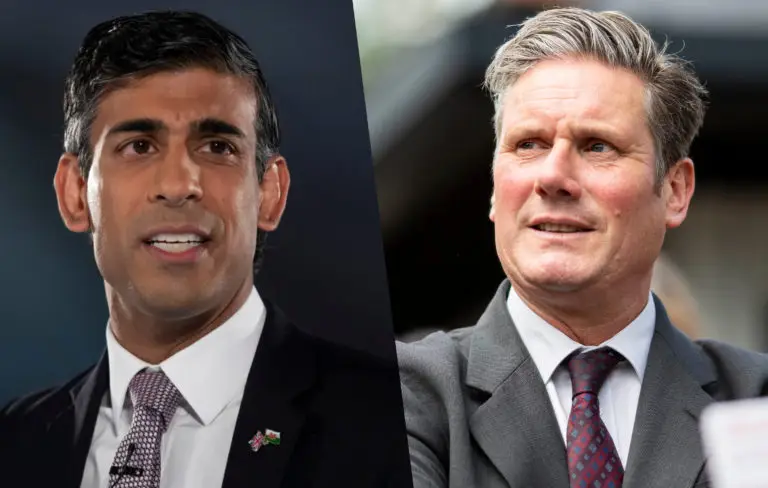As the cost of living crisis bites, a prolonged wave of prolific strike action threatens to grind the country to a halt, and the health service confronts the most intense pressure its 70-year history, there was a lot riding on last week’s New Year’s leader speeches. Both Keir Starmer and Rishi Sunak set out competing visions for Britain and unveiled their plans for government with the next General Election expected to be less than two years away.
For the Prime Minister, the task was to demonstrate competence and compassion after a tumultuous year of economic mismanagement, sleaze allegations, and ongoing turmoil within the Conservatives. Acknowledging the scale of the problems facing the country, Sunak laid out his five pledges for government: to halve inflation, grow the economy, reduce debt, cut waiting times, and stop small boat migration. But his vague commitments neither matched the severity of competing and intensifying crises nor revealed much about his vision for the country beyond simple clichés. Few reassurances, for instance, were given to people living in chronic poverty, to those concerned about the looming environmental catastrophe, or to the millions of people bearing the brunt of the housing crisis.
In short, what Sunak set out was a vision of uninspiring competence: objectives with imprecise deadlines and without quantitative benchmarks from which to measure his success. He wants to grow the economy, but it is not clear by how much. He promises to get national debt falling, though has not specified a timeline for this and, as economists point out, this is an existing fiscal target that the OBR already expects the government to meet. Meanwhile, though his focus on NHS waiting lists has been welcomed, there is concern that the government should be doing much more to address issues immediate issues in A&E and the ongoing strike action. In other words, Sunak’s assertion to only promise what he can deliver and deliver what he promises probably means he will be able to claim success, regardless of the extent to which his five objectives have actually been met.
For his own part, Starmer needed to put forward an alternative agenda with tangible policies that separate Labour from its opponents. Indeed, to sustain his party’s substantial lead in the polls, it will not be enough to rely simply on public disapproval of government. In the coming months, he will have to establish a clear strategy for the delivery of a distinct policy agenda with manageable deadlines.
Overall, the emphasis of his speech lay in his broader vision rather than in the finer detail. Aside from announcing a new so-called “take back control bill” that promises to expand devolution powers to areas including housing, culture, childcare provision and employment support, Starmer gave away little about how he intended to address the urgent challenges confronting the country. Although some specifics emerged in the subsequent media questions: he committed to reviewing Labour’s position on university tuition fees and pledged to revoke any anti-strike legislation, he will need to do much more in the months and years ahead to convince voters that Labour is ready to take the keys to Number 10.
With Sunak and Starmer chasing the centre ground of British politics, these were two speeches similar in tone and mood: both leaders spoke of the “anxieties” facing millions of people across the country, the “tough” decisions awaiting its leaders and the “sacrifices” required by everyone to affect positive change. Distinctly absent from both speeches too was Brexit and its substantial impact on the UK economy – estimated to be 4 per cent smaller as a result of leaving the European Union – as the pair tussle in a crude battle for the support of so-called ‘Red Wall’ Brexit-leaning voters.
In the end, these speeches set the battlelines for what is set to be an important year in politics. Sunak will come under increasing pressure to deliver not only on the promises outlined in his speech, but also on long-awaited headline legislation, including the Online Safety Bill and the Renter’s Reform Bill. Meanwhile, Starmer’s challenge lies in proving that Labour is a government in waiting, in a position to win back the voters it needs to secure victory in 2024. For now, Starmer’s arguments look set to prevail. But the year has only just begun and a week is a long time in politics.





